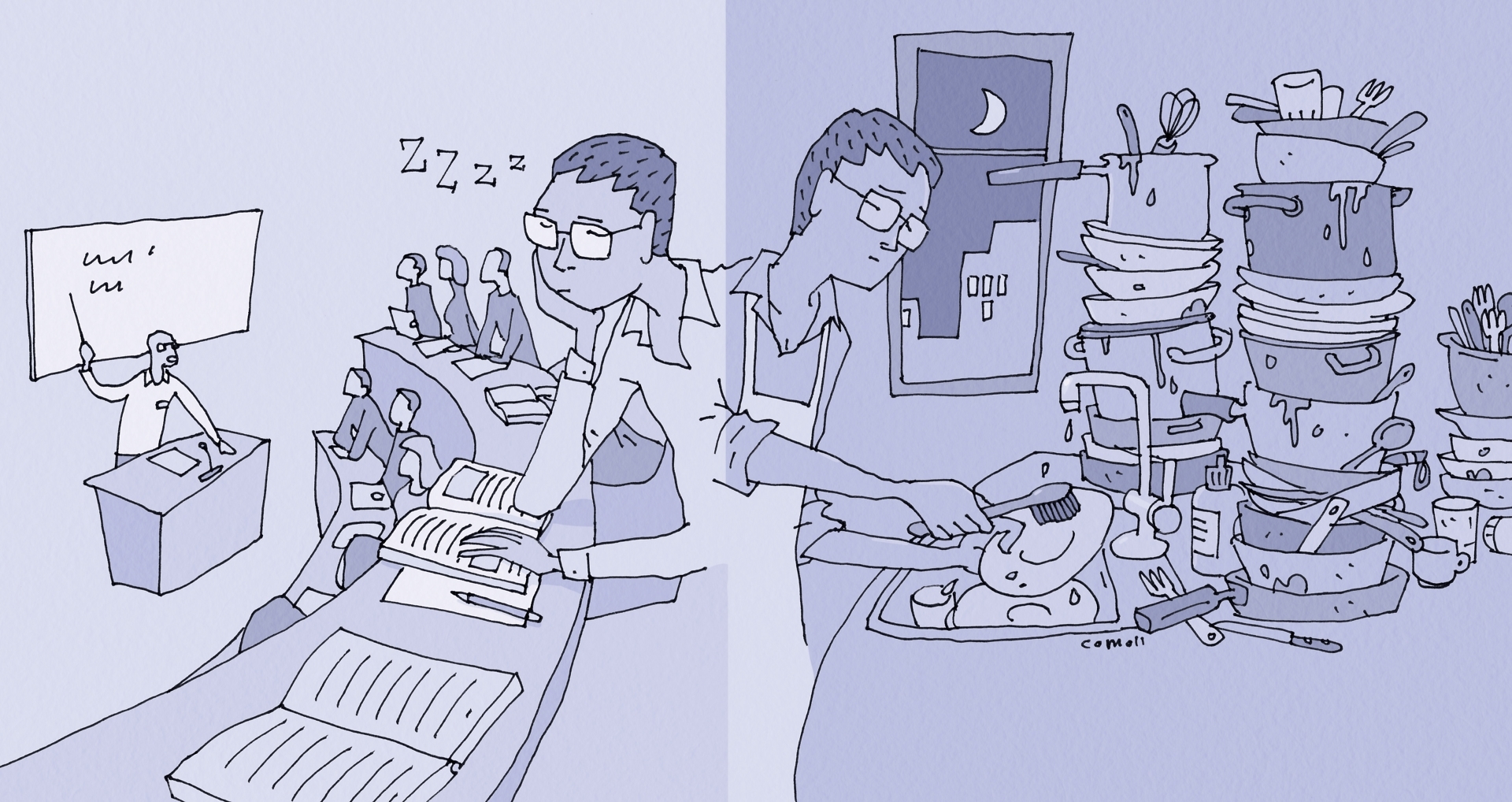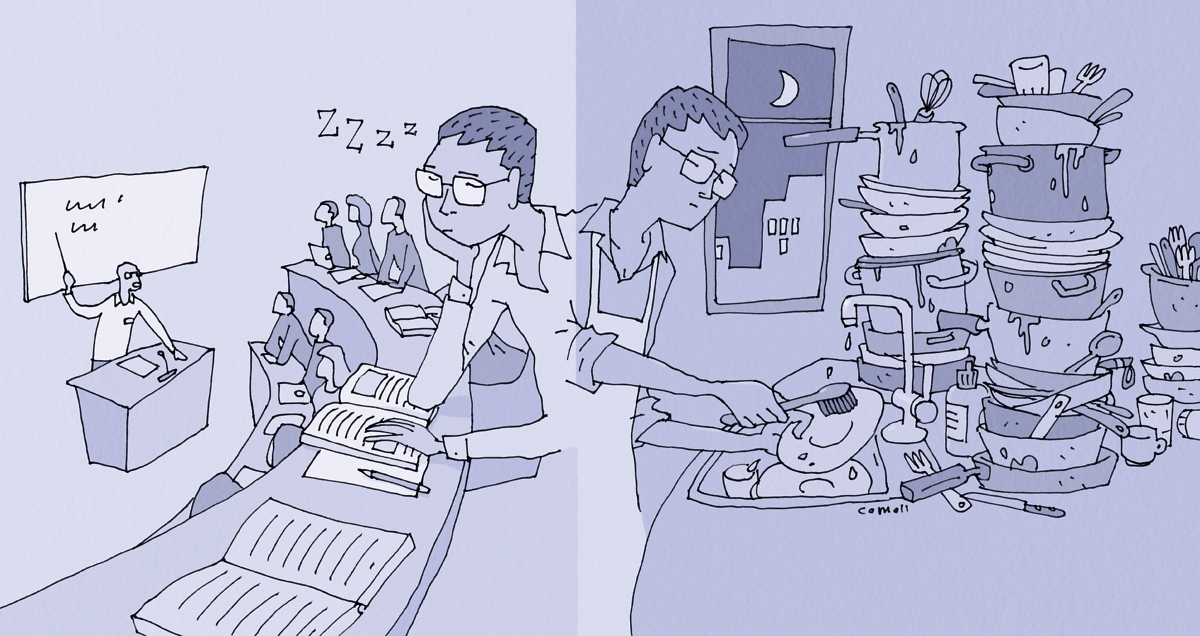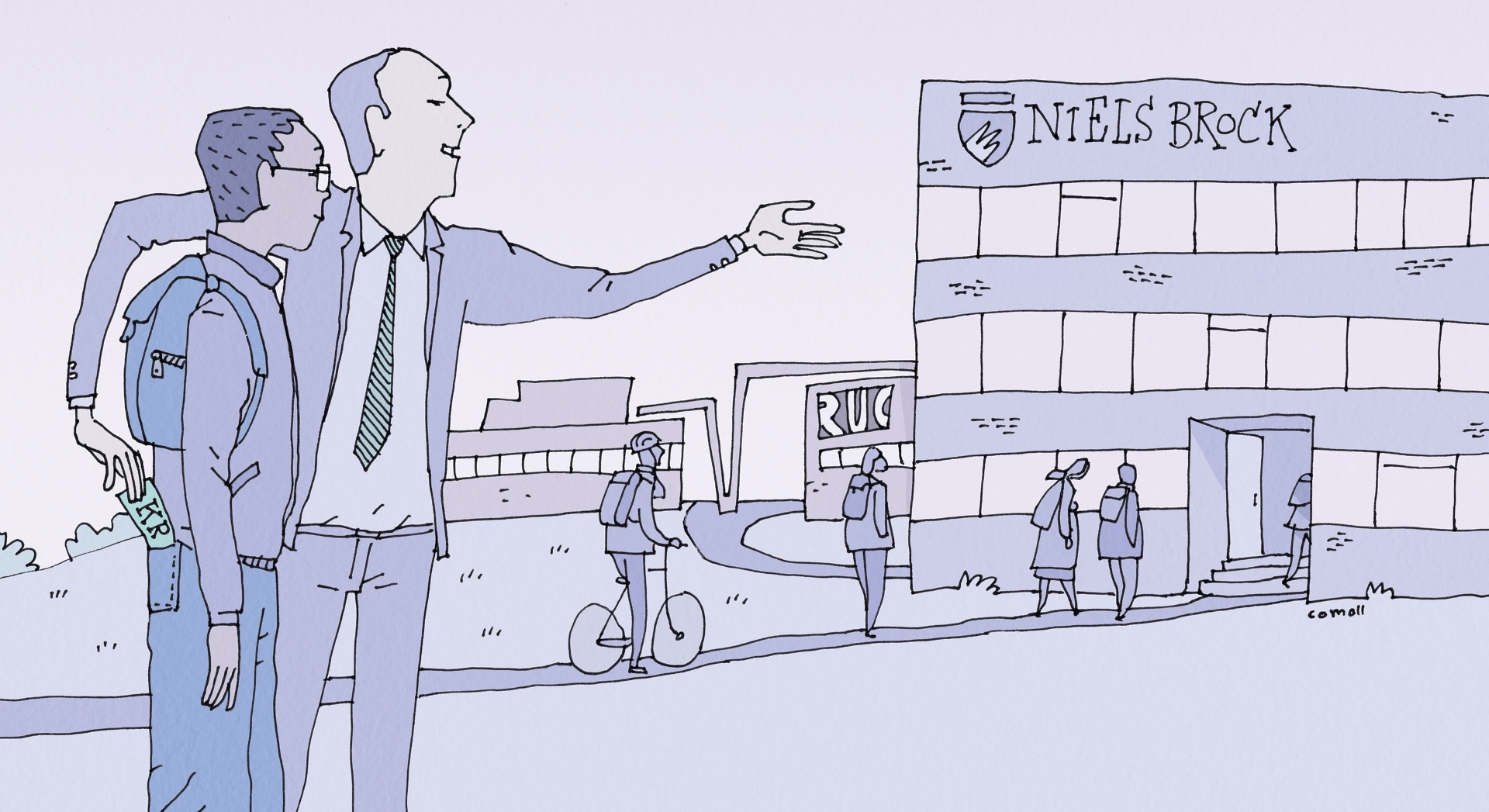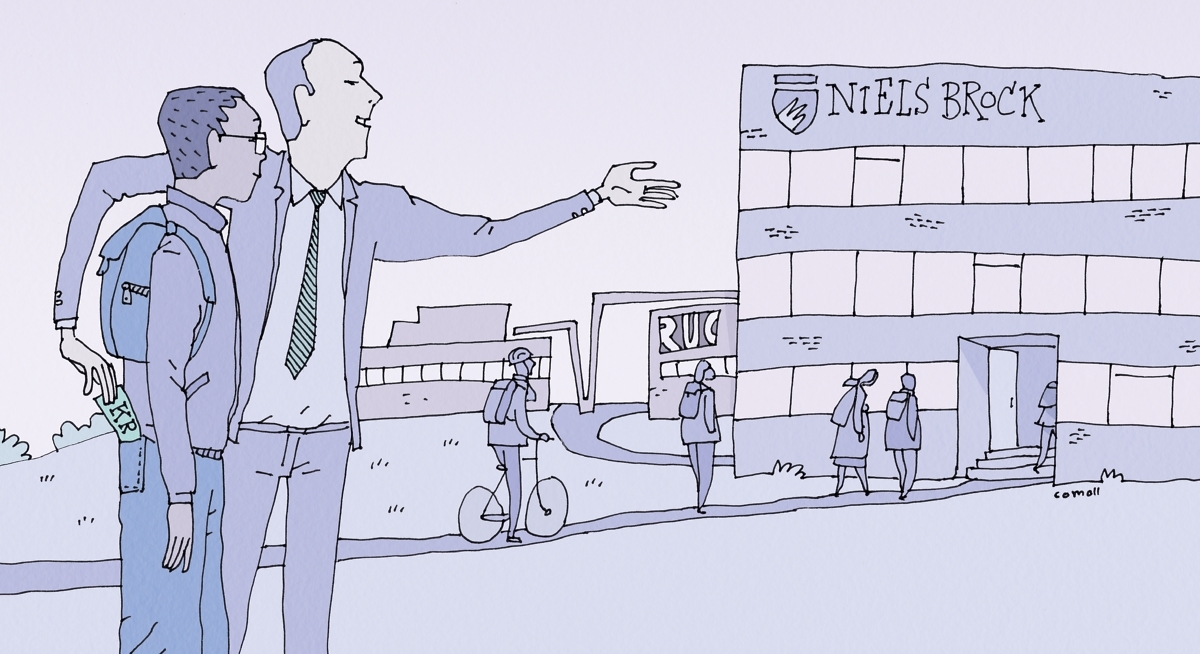

Many Nepalese students dream about studying abroad, and for several of them the road leads to Denmark. On a yearly basis Denmark receives 600 Nepalese students, and at present there are 143 Nepalese post graduate students at RUC which is one third of all international post graduate students at RUC. However; an education at RUC is expensive, particularly if you come from Nepal where an average monthly salary is approximately 1500 Danish kroner. One semester at RUC costs between 30,000 and 40,000 Danish kroner and in addition they have to pay for their living expenses.
Therefore many Nepalese students work very hard to make ends meet in their everyday lives.
»According to the rules we are only allowed to work 80 hours a month while studying. But hardly any of us, who has a job, gets a salary sufficient enough to pay for an education and living costs,« states an anonymous 25year-old student who right now is studying at Niels Brock. He has high hopes of getting access to take his Master’s degree in Denmark, perhaps at RUC.
He tells us that for most students their daily routine is to attend classes from 8 o’clock till 3 in the afternoon and afterwards go straight to their underpaid jobs at restaurants and hotels where they work until 2 o’clock at night. He adds that “of course” that does not appear from the agreements.
»According to the rules we are only allowed to work 80 hours a month while studying. But hardly any of us, who has a job, gets a salary sufficient enough to pay for an education and living costs.«
Anonymous 25year-old studen from Niels BrockFear of losing their job
Though several of the Nepalese students we have been in contact with state that they have to work extremely hard in order to afford staying in Denmark they do not express criticism of their working conditions. Not in public, anyway. Karen Valentin, associate professor in Anthropology of Education and Globalization at Danish School of Education, Aarhus University, has since 2011 conducted research on Nepalese migrants’ living conditions in Denmark, and she recognizes these statements from anonymous Nepalese students and tells us that she, during her interviews with Nepalese informants in Denmark, has heard many stories about their lousy working conditions.
»What matters to them is that they risk losing their job if criticism is levelled against their working conditions in public. What we regard as a healthy, political debate on our job market may very well shatter the possibilities of taking a Master’s degree for Nepalese students, because the political response to that kind of critique is often a tightening of the law. Though their conditions may be bad, a salary is a tidy sum of money compared to no money at all,« says Karen Valentin.
That is the very same issues our anonymous Nepalese student articulates:
»We are not interested in spilling to the media how lousy our conditions really are, because that would be even worse for us. When the papers wrote about how Nepalese workers get the lowest wages in Denmark, many Nepalese students found that this evidence only made their wages even lower. Their employer informed them that they could read in the newspapers that other Nepalese students were willing to work for less, and if you weren’t that willing you could go find another job,« says the 25year-old student.
»We are not interested in spilling to the media how lousy our conditions really are, because that would be even worse for us.«
Anonymous 25year-old studen from Niels BrockHe is referring to the lengthy debate about Nepalese workers’ conditions in Denmark that flared up again in February 2018 when the Danish Economic Council of the Labour Movement published a new report. It showed that Nepalese workers are the most underpaid in Denmark, and that their average salary is 12,000 Danish kroner for 21 working hours per week.
In January this year The Danish weekly magazine Ugebrevet A4 wrote about the working conditions and salary of Nepalese people in Denmark.
The case led to a consultation meeting in May between Kristian Jensen (V), Minister of Finance and Inger Støjberg (V), Minister for Immigration, Integration and Housing.
Lecturers and fellow students; Nepalese students give their education a low priority
The tough working conditions put financial pressure on the students. Lecturers and Danish fellow students say that this has an impact on the academic milieu at RUC.
»I have experienced that when I tell Nepalese student where there is room for improvement in their studies I get the answer that they don’t have time since they have to work so hard. It definitely has an impact on their academic standard,« says Jacob Dahl Rendtorff, professor of philosophy of management the Department of Social Sciences and Business at Roskilde University.
Jacob Rendtorff emphasizes that he has met Nepalese student who are both very bright and highly committed. But he can also tell that when it comes to education these students have at very different educational background where problem-oriented project work and group work is not as common as it is at RUC. A fellow Danish student, who once teamed up with two Nepalese students, says that this have an impact on group work.
»There was a clear difference between our work ethic, but what made it really difficult was the fact that we were not at the same level in our lives. They were both married, one of them had kids, and they had to work very hard while studying. That made it really difficult for us to meet to study together for our exam,« says Mikkel Gottlieb who teamed up with two Nepalese students and one from Lithuania when they were to write their third semester project for their Master’s degree.
»I have experienced that when I tell Nepalese student where there is room for improvement in their studies I get the answer that they don’t have time since they have to work so hard.«
Jacob Dahl Rendtorff, professor of philosophy of management the Department of Social Sciences and Business at Roskilde UniversityA job is a prerequisite for studying in Denmark.
Even though lecturers and Danish fellow students point out that the financial pressure on the Nepalese students has an impact on the academic standard and their possibilities for participating properly there is no alternative. Not right now, the Nepalese students tell us.
»The problem is not that we work more than we are legally allowed to. The problem is that we have to work so hard because our working conditions are so bad. We cannot pay both tuition fees and cost of living if we are only allowed to work 80 hours … not when we are so underpaid. We deeply want to work less and study more,« our anonymous student says.
As a consequence many Nepalese students bring their spouse or partner to Denmark so he or she can work fulltime. Together they may have a chance to make ends meet.
»Quite honestly, I really needed my wife to come to Denmark to work. Otherwise I would not have been able to complete my studies. But I prepared her for the fact that the jobs she would be able to get are not very desirable,« says a 32year-old Nepalese man. Today he has a residence permit and lives in Copenhagen city with his wife and his daughter who is born in Denmark.
Karen Valentin, lecturer at DPU, describes the Nepalese students as dedicated and hard-working people who sincerely want to get an education in Denmark and maybe settle here. But she also points out that their dreams of getting this education may only come true if they are allowed to work while studying.
Karen Valentin adds:
»Very few of them would come to Denmark if they didn’t have a job here. Many Nepalese students feel lucky to have a job even if their working conditions are bad. You see, since they are taught in English they place great emphasis on their job being the only place where they may learn to speak Danish. It also gives them the opportunity to be part of a social community and to build up a network.«


